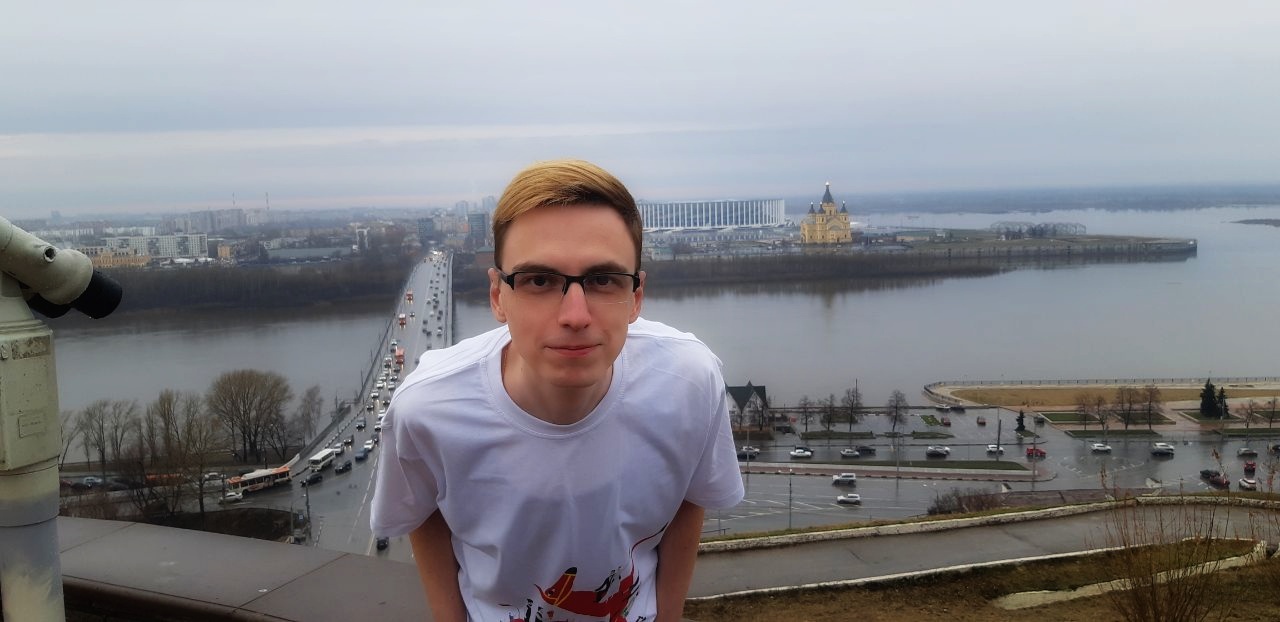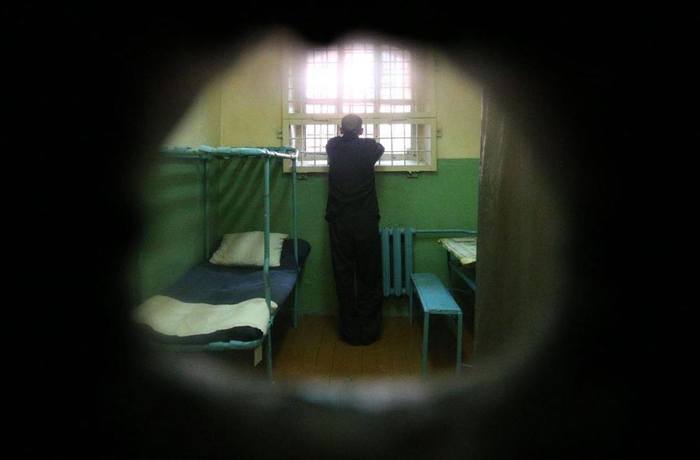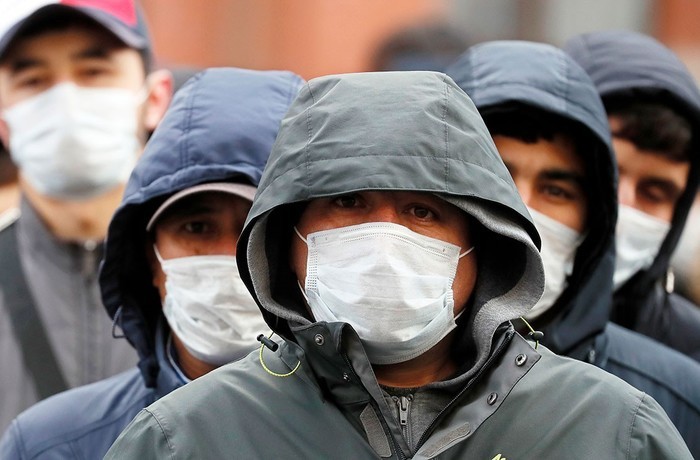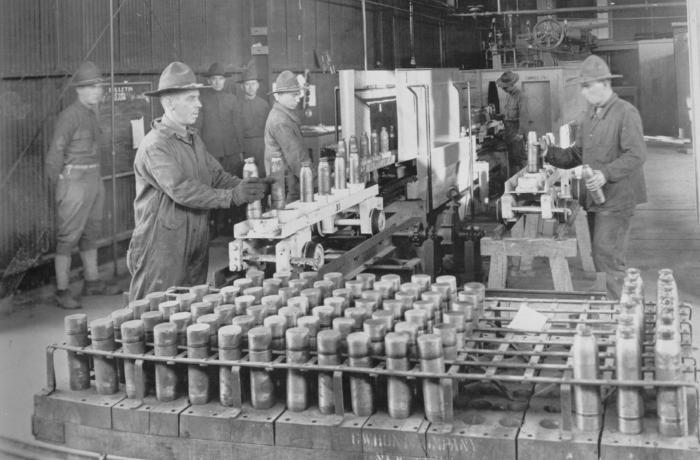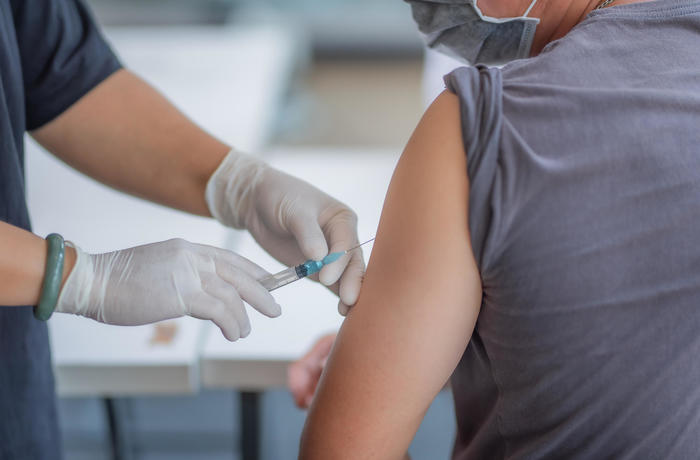— So, AIDS.CENTER in Nizhny Novgorod isn't your first project. What activities were you engaged in before?
Maksim: In 2015, we launched an LGBTQ+ community centre in Nizhny Novgorod to meet the demand from the community. There are many LGBTQ+ people in every city. However, in some cities, they might struggle to find support.
The single gay club in Nizhny Novgorod has been around for 20 years now. There were simply no other places to meet except for the club, but a lot of people just aren't into clubbing.
That's why we came up with the idea of launching an alternative space. We had an English speaking club, we played board games, and we offered counseling with a psychologist. Different sports activities were available as well: we used to go skiing in winter, organized quests in summer, and go backpacking and hiking in autumn.
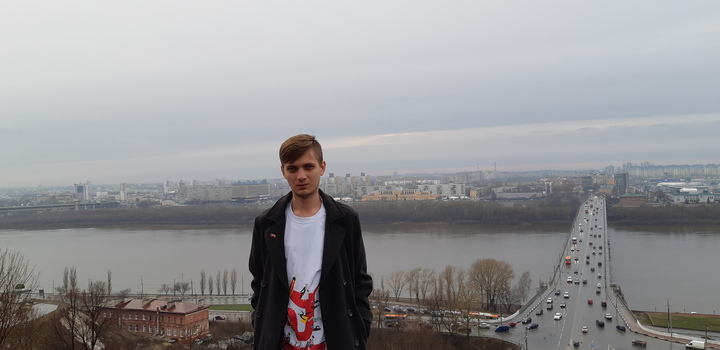
The centre is still operating, welcoming something like 50 or so people, who are mostly students and young people aged 25-30 years. Interestingly, most of the participants were initially girls, but then, some guys started coming as well.
— LGBTQ community centres aren't that common in the provinces. Did you have any problems with the local authorities? Perhaps, with the owners of the shops nearby?
We steered clear of the civil servants, and never asked permissions from anyone. As for the shops nearby, well... a jewellery store, an electrical equipment store... there used to be a children's vocal-studio, we had some problems with them. Thank goodness they finally moved out. (laughs)
— Was their singing that bad?
They sang well, but it was too loud. Besides, it sounded like a broken record, they would sing about the orange sky (translator's note: reference to one of the most well-known Russian kiddie song, 'Orange Song', about a kid painting everything into his favourite colour, orange) and lots of songs about moms and dads, again and again. In all seriousness though, there were some tricky moments about the rent, and the place wasn't a perfect match, so at some point, we also had to move. The LGBTQ+ centre is now situated in the very center of the city, next door to many pubs and karaoke-clubs. It's a two-storey office centre located in a quaint 19th-century mansion.
"All that remains are some facades that were painted before the World Cup".
The local gay club is also in the same building. That's why we don't have any problems with our landlords: they are used to everything. However, it was more of a problem to find a place for AIDS.CENTER. Landlords immediately came up with questions like: "Ehm, are sick people going to come here?". We assured them that our guests do not pose any threat to anyone.
— You really mean to tell me you were never questioned by, say, the police or 'patriotic' organizations? You know, all that "traditional family values" discourse that has been popular in recent years.
When we held an event dedicated to the situation in Chechnya, someone tore our poster. But everything is generally peaceful.
Frankly speaking, during the FIFA World Cup, it was absolutely fine to hug your boyfriend in the public since there were dozens of foreigners, and the locals were somewhat more tolerant. Local media even published photos of guys holding hands and walking across our 'Times Square'. Nevertheless, such behaviour is quite rare here. After the World Cup, everything went back to square one.
All that remains are some facades that were painted before the World Cup.
If you want to know about violence, the majority of gay people here in Nizhny Novgorod have become open to their friends, some to their relatives, but no one has completely come out-and-proud. That is why there are almost no violence problems.
— Though there are some stigma problems with HIV. How well informed are the people in Nizhny Novgorod? Do they know, for example, what pre-exposure prophylaxis (PrEP) is?
Hardly so. Until last summer, it was impossible to buy any antiretroviral medicine, including PrEP medicine. There was a shipment before the World Cup in case foreigners asked. But they were available only in one drugstore, others refused to sell them.
on the topic
Society
Denis's Last Summer. How and Why People Die of AIDS in Russian Prisons
They didn't want to work with 'these people'. By the way, we have already tried to buy something there. The first time we did not succeed. A guy needed post-exposure prophylaxis, and they told us the medicine is available only by prescription. And so they refused to sell it.
The next time, we managed to persuade the drugstore employee. We bought Tenofovir and Emtricitabine. At first, the pharmacist really didn't understand what we wanted, and started suggesting cold remedies. So we had to call the chief pharmacist, but she took offence and told us: "Why didn't you say you need pills for AIDS to begin with?". But she finally did sell them to us.
— How did you initially get involved in HIV-preventive treatment? What do you do for a living?
Maksim: We've been involved in HIV preventive treatment among MSMs, which stands for males who have sex with males, for quite a while now, but it started almost by accident. In 2015, we were offered to launch an express-testing project sponsored by GFATM (Global Fund to Fight AIDS, Tuberculosis and Malaria), which ended up being our regular job.
— And what was your major at university, what are you career-wise?
Maksim: I'm an architect and engineer, I work in this field.
Nikolai: I'm a pastry chef by profession, but after working 9 years in the food industry, I finally gave it up. Since then, I've been working in social services.
— Where do you do the tests?
Maksim: Mainly at the club. During theme parties and also at the local gay club.
— Could you elaborate on this, please?
Well, the club isn't that big, usually 50 to 150 people come here on the weekends. Nothing special: dancing and drag shows. Furthermore, it exists legally, and everyone more-or-less knows about it. However, there is no signboard. Just a black door in a portal.
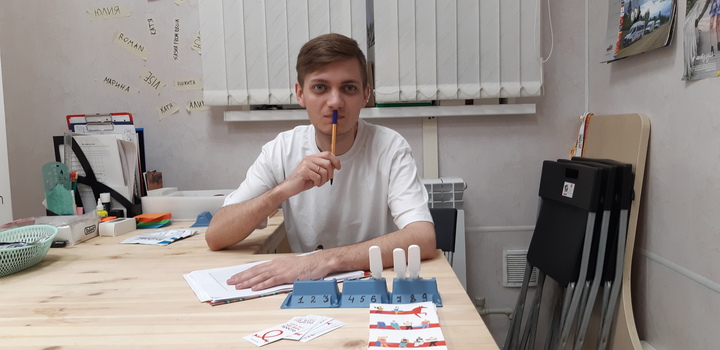
We usually come there around midnight, and lay out our tools right on the window sill. There is the highest-traffic spot.
— And how many people get positive results?
Usually 1 or 2 people per one outreach. We generally get 13 positive results per 150 tests. That's roughly 10% of the gay population, just like anywhere in the world.
— And what is their reaction like?
We did our best, and got almost everyone with the positive results to the doctor. We don't leave our friends out in the cold. If there's need, we give them our phone number or ask for theirs. We always call them back, ask how things are going. It's not like there's hundreds of positive results, so we can address each of them personally.
— Do the visitors treat your offer to get tested with understanding?
Nikolai: There are some who enjoy debating. They once surfed the Internet, and now think they are doctors; we do have some problems with them. But at the end of the day, everyone gets tested, even the drag queens. By the way, they also announce us right from the stage.
We sometimes go around the tables and offer to test.
— Do people tend to look away when you do that?
Maksim: There are some folks with a 'crown' on their head. You know, they would always stand at the bar looking on everyone up and down, not getting acquainted, not chatting... They have a cocktail, posing like this and then like that, but to no avail, nobody is willing to approach them, people just don't dare to. It gets a bit more complicated with them. Although, even they agree to get tested at the second or third offer.
— Do you cooperate with the local AIDS Center doctors?
Not yet, but that's on our roadmap. There is a guy, who is in charge of preventive treatment, he gives lectures, among other things; we know him quite well. He used to have a project dedicated to sex workers, but it has recently been shut down.
Landlords immediately came up with questions like: "Ehm, are sick people going to come here?"
The local AIDS centre would provide us with condoms and brochures. Besides, we report them on our results for the purpose of statistics, which are then sent to some superior authorities.
We turned to them a couple times to register the guys who didn't have permanent residences for treatment. But it didn't work out, and the guys had to go back to their home regions. With one guy from Uzbekistan, we even had to ask other patients to share their private stocks of pills. In the end, we managed to scrape up enough pills for his treatment. But this situation was an exception.
— Are there any other agencies in the city providing help to men who have sex with men besides yours?
No. There is a foundation that deals in the rehabilitation of HIV-positive people, but they are focused on drug addiction. By the way, they are going to be awarded with a presidential grant that will help them carry out preventive treatment measures in jails. Since the Global Fund stopped financing the region, there are not so many alternatives to public financing left.
— So you are now the coordinators of an AIDS.CENTER branch office. What are you planning to do first? Have you found premises yet?
Yes, we've rented a place already. It's not far from the LGBTQ+ centre and the gay club, just in another building. Besides the tests, we are planning to set up support groups for HIV+ people. It's just necessary, and there are already a lot of people who are willing to join such groups.
We've already added the office address to Google maps: 39 Rozhdestvenskaya St. We are going to start giving lectures there after a while. Moreover, we are going to give tests not only within the LGBTQ+ community, but actually partnering with, for example, pub or pay-per-minute cafés that are popular among young people. There are several places where they have already agreed to support our initiative. We're not going to give up the gay club either.
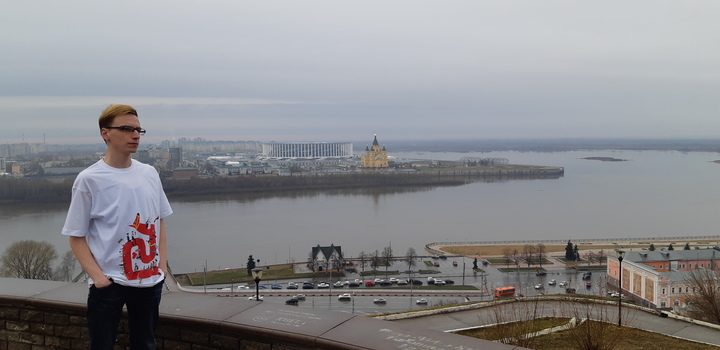
In the future, we will probably give lectures at universities and other education institutions. I have attended such lectures, and they are mostly successful in big cities. However, in small towns, people still laugh when they hear words like "condom". They are not that open-minded concerning such issues yet.
Our first outreach in the new capacity is going to take place during the Human Library event on April, 21. The centre is scheduled to open on April, 26 at 4 p.m. at the address specified below. The management of Nizhny Novgorod Regional Centre for the Prevention and Fight of AIDS and Infectious Diseases, as well as media representatives and everyone interested in this topic will be present at the event.
Branch address:
Blinovsky Business Centre, Office 6, 39 Rozhdestvenskaya Street, Nizhny Novgorod, Russia.
Phone:
+7 (950) 626 74-09
+7 (831) 291-11-85


